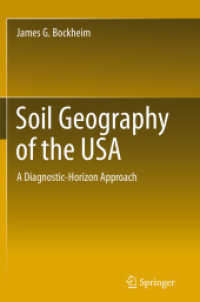Full Description
Detailing the history of the aboriginal village of Iskut, British Columbia over the past 100 years, 'We Are Still Didene' examines the community's transition from subsistence hunting to wage work in trapping, guiding, construction, and service jobs.
Using naturally occurring, extended transcripts of stories told by the group's hunters, Thomas McIlwraith explores how Iskut hunting culture and the memories that the Iskut share have been maintained orally.
McIlwraith demonstrates the ways in which these stories challenge the idealized images of Aboriginals that underlie state-sponsored traditional ecological knowledge (TEK) studies. McIlwraith instead illuminates how these narratives are connected to the Iskut Village's complex relationships with resource extraction companies and the province of British Columbia, as well as their interactions with animals and the environment.
Contents
Contents
Dedication
Acknowledgments
Notes on Orthographic and Transcription Conventions
Introduction: The Persistence of Hunting
Part I: Background
Chapter 1: Aboriginal Hunting in an Era of 'TEK'
Chapter 2: Iskut History and Hunting
Part II: Stories about Hunting and History
Chapter 3: 'That Bloody Moose Got Up and Took Off': Food Animals and Traditional Knowledge
Chapter 4: 'Rough Riding All Day': Work Animals and Guiding Work
Chapter 5: Chief Louie's Speech at Spatsizi Plateau Wilderness Park
Chapter 6: Everyday Talk about Hunting
Appendix 1: Tahltan Language Place Names
Endnotes
References







